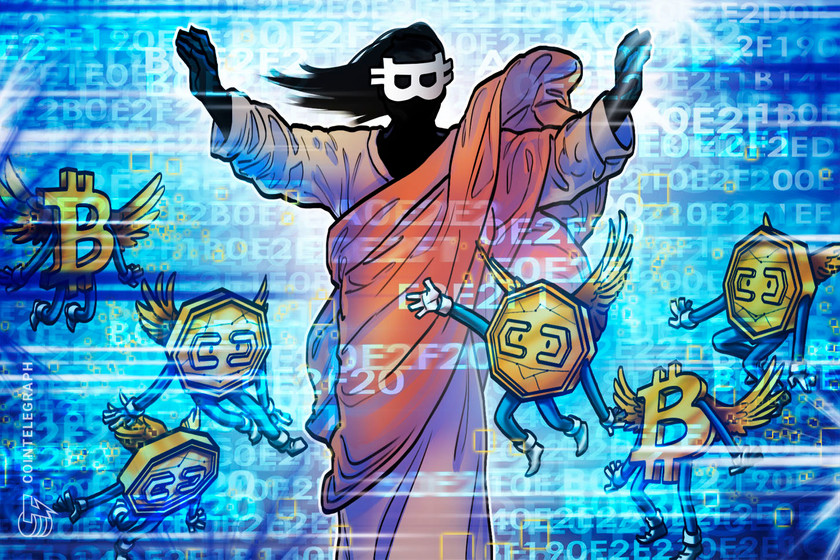5 tips for riding out a downbeat market this holiday season


The market doesn’t look like it’s going to spike upward anytime soon. While you wait, grow your network and position your portfolio to take advantage of a future recovery.
These forecasts are driven by deteriorating structural fundamentals. For example, credit card debt has surged past even 2020 levels, with interest rates charged by banks that are just slightly higher than those observed leading up to the post-2000 dot-com crash. And yet, labor force participation rates — or the proportion of the population that is able to work and is working — have still not recovered to pre-pandemic levels. Furthermore, inflation — as measured by the consumer price index — has surged over the past few years.
Economic forecasts suggest that we are in for greater economic turbulence. The United States has been in a recession and that recession is expected to continue, with the Conference Board forecasting a further decline in gross domestic product (GDP) by 0.5% in Q4 of this year. It also anticipates that the recession will continue into at least Q2 of 2023. That was before the collapse of crypto trading platform FTX, which had profound downstream effects on investment portfolios and non-crypto companies. Other more optimistic forecasts, such as those of the Federal Reserve Bank of Philadelphia and S&P Global, are just barely positive for 2023 at 0.7% and 0.2%, respectively.






These macroeconomic indicators are common outside of the U.S. too. Many – even the International Monetary Fund — have pointed out the increase in inflation as a result of higher energy prices in Europe, which is one factor, among others, that contributes to the European Union’s recent forecast of nearly zero GDP growth for all of 2023. That is on top of its already long-run demographic challenge that there are too many people aging out of the labor force and not enough new entrants, which has dire implications for GDP growth.
Related: The market isn’t surging anytime soon — So get used to dark times
While these macroeconomic fundamentals are outside your control, there is still a lot within your control. We need to remember that we have substantial agency over our lives and do not need to get dragged into an economic tailspin just because that’s what might be happening to the aggregate economy — we can still individually thrive during a famine.
Here are five tips for doing just that.
Optimize the wait. Make the best use of your time every day, which might mean picking up a new skill or taking up a freelance job that deploys your broader skill set. Especially with the emergence of artificial intelligence and automation, certain tasks are becoming obsolete and other new creative opportunities are emerging — and you can leverage that trend by acquiring the skills to perform these tasks. There are substantial mismatches in the demand and supply in certain parts of the labor market, such as artificial intelligence and cybersecurity jobs, so consider picking up a new skill that you can put to work.
Reflect and take inventory. It is far too easy to look at the circumstances we personally or as a society are in and get worried, but take stock of what is going right and what you’re thankful for. The holidays are an especially good opportunity to do so. By putting your circumstances in perspective, you avoid a lot of mental rabbit holes that could cause you to become more anxious and disappointed, which unfortunately only further amplifies challenging circumstances. Even when circumstances look bleak, remember what you have and what you have been through — it will inspire you to go on.
Grow your network. Building relationships is part of the adventure we are on. Focus on people as actual human beings, rather than potential doors of opportunity. People are indeed doors, but treating people in transactional ways warps your perspective of life and ends up closing those doors, because people do not like being treated as vending machines. (Would you like it if people only talked to you based on what you could give to them?)
Related: 5 reasons 2023 will be a tough year for global markets
Cherish small wins. We often focus on the big and flashy goals or aspirations, but overlook what is immediately in front of us. We have a lot more agency than we give ourselves credit for! Whether you are taking care of your property or writing an excellent report at work, demonstrating excellence in everything that you do creates a lot more optionality in the long run that yields truly fulfilling and fruitful employment opportunities.
Always carve out some proportion of your earnings for savings. Consider investing it in structurally sound digital assets. There is no substitute for setting aside resources every month, whether crypto or fiat, that you can draw on when you’re most in need. There will always be an element of unpredictability in the world, so view these savings as your insurance policy on market downturns. Even though crypto has been in a winter, all assets have been struggling because the entire market is in a downturn. But the future of the major tokens, such as Bitcoin (BTC) and Ether (ETH), remains hopeful, and it’s just a matter of time before they rebound. Moreover, as governments become more volatile and inflation continues to grow, crypto can be a useful hedge and diversification strategy.
Don’t despair even when the economy is faltering. You and your household can still thrive!
This article is for general information purposes and is not intended to be and should not be taken as legal or investment advice. The views, thoughts and opinions expressed here are the author’s alone and do not necessarily reflect or represent the views and opinions of Cointelegraph.







